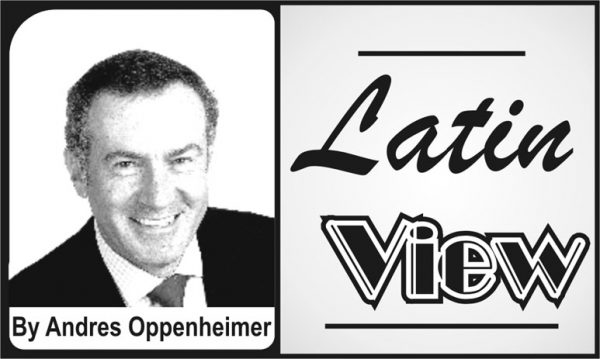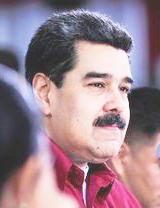 After several years in which the so-called “Group of Lima” of Latin American democracies had made great progress in speaking up collectively against Venezuela’s dictatorship, most of its members have now issued an unfortunate statement that will hurt the cause of freedom in Venezuela.
After several years in which the so-called “Group of Lima” of Latin American democracies had made great progress in speaking up collectively against Venezuela’s dictatorship, most of its members have now issued an unfortunate statement that will hurt the cause of freedom in Venezuela.
The statement by 11 countries of the “Group of Lima” rejected calls for a military intervention in Venezuela, which is diplomatically and legally correct, and shouldn’t surprise anybody. But it failed to propose any non-violent actions to press Venezuelan dictator Nicolas Maduro to take steps for the restoration of democracy, in flagrant contradiction with the group’s own previous commitments.
The Sept. 16 statement was signed among others by Mexico, Brazil, Argentina, Chile, Peru and Paraguay, and stated that the solution to Venezuela’s crisis should be “through a peaceful and negotiated way.” It added that the signatory countries “express their concern and rejection of any action or statement that implies a military intervention” in Venezuela.
The statement came hours after the Secretary General of the Organization of American States Luis Almagro had said that no options should be ruled out in efforts to put an end to the Venezuelan crisis. Almagro later clarified that he was calling for “diplomatic intervention.”
Two key countries of the Group of Lima, Colombia and Canada, did not sign the Sept. 16 statement.
I asked Colombia’s foreign minister Carlos Holmes Trujillo in an interview which was to be broadcast Sunday night on CNN en Español whether Colombia’s failure to sign it meant that it wants to keep a military option open. He responded, “We reject any belligerent attitude and any violent action.”
Asked why Colombia failed to sign the statement, Holmes Trujillo said that his country disagreed with parts of its language. A top diplomat from another Latin American country told me that Colombia had not signed the statement because it felt it read as a tacit criticism of Almagro, who has been a staunch defender of democracy in Venezuela.
By failing to even mention any new diplomatic or financial sanctions, the Group of Lima forgot its own previous commitments. On May 21, the group had unanimously agreed to reduce diplomatic ties with Venezuela’s regime, seek world humanitarian aid to cope with Venezuela’s refugee crisis, and to take steps to freeze financial assets of Venezuelan officials involved in corruption or human rights abuses.
But, incredibly, the group did nothing of that in its latest statement. Nada! In the meantime, the humanitarian crisis in Venezuela is worsening by the day.
More than 1.6 million Venezuelans have fled to neighbouring countries over the past two years, trying to escape food and medicine shortages, and from a projected 1 million a year inflation rate. Colombia’s Migration Office director Christian Kruger told me recently that he expects the number of Venezuelan refugees to double over the next twelve months.
What should the Group of Lima do to help produce a peaceful solution to Venezuela’s political and economic crisis?
First, it should send a clear message to Maduro that its member countries will cut diplomatic ties with Venezuela unless the regime restores its full rights to the National Assembly that was democratically elected in 2015, appoints an independent electoral tribunal, frees all political prisoners and allows free elections.
Second, impose visa sanctions and freeze the foreign assets of top members of the Maduro regime. Many of them hold huge fortunes in foreign banks, including some in Latin America.
Third, call on international institutions to help Latin American countries cope with the Venezuelan exodus, and ask the Trump administration to allow Venezuelan refugees into the United States, instead of deporting many as it is doing now.
Summing up, it’s totally understandable for the region’s democracies to reject any military solution that is not supported by international law, such as a United Nations Security Council resolution. What is counterproductive, and inexcusable, is to put out such a statement without balancing it with new measures to put diplomatic pressure on the Maduro regime to restore democracy.
Shamefully, the Group of Lima’s one-sided statement has handed a diplomatic victory to the very regime that is driving away millions of Venezuelans, and creating the biggest migration crisis Latin America has seen in recent times.










